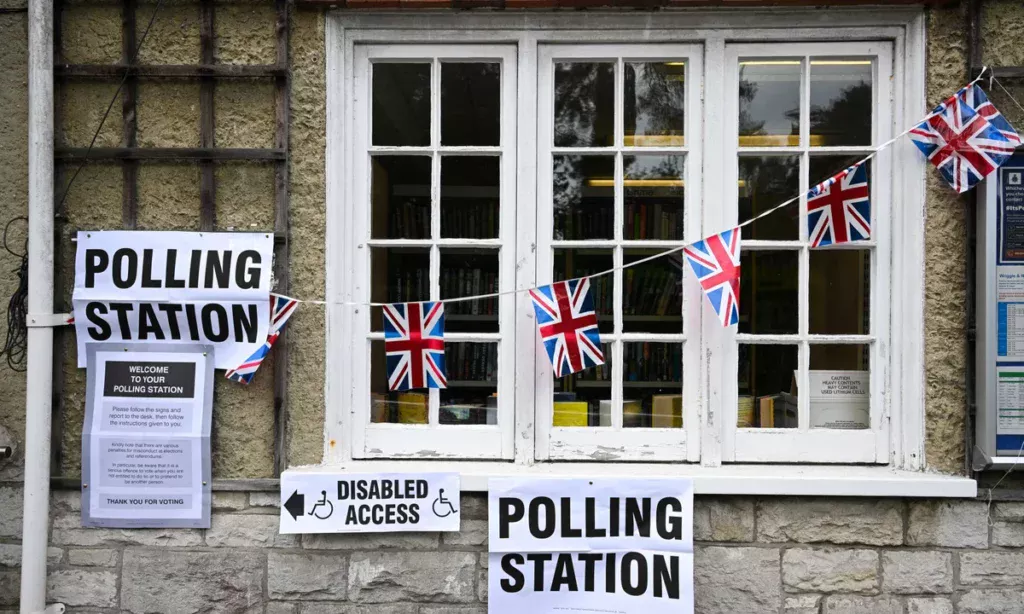Understanding the intricacies of voting rights is essential for anyone residing in the United Kingdom. A common question that arises is, “can immigrants vote in the UK?” This article delves into the eligibility criteria, different categories of immigrants, and the broader implications of voting rights for non-citizens in the UK. By exploring these aspects, we aim to provide a comprehensive and SEO-optimized guide for immigrants seeking to understand their political participation options.
Overview of Voting Rights in the UK
Voting is a fundamental democratic right, allowing individuals to influence government decisions and policies. In the UK, voting rights are primarily reserved for British citizens, with specific provisions for certain Commonwealth and EU citizens residing in the country. Understanding who can vote is crucial for immigrants who wish to engage in the UK’s democratic processes.
Eligibility to Vote: Citizens vs. Non-Citizens
The United Kingdom differentiates between various types of residents when it comes to voting rights. While British citizens generally have the broadest voting privileges, non-citizens’ rights vary based on their residency status and nationality.
British Citizens
British citizens are entitled to vote in all elections, including general elections, local elections, and referendums. They can also stand for public office, making them the most engaged demographic in UK politics.
Commonwealth Citizens
Commonwealth citizens residing in the UK have the right to vote in local elections and elections for the European Parliament. However, they cannot vote in general elections unless they acquire British citizenship.
EU Citizens
With the UK’s exit from the European Union, EU citizens’ voting rights have changed. Currently, EU citizens residing in the UK can vote in local elections and referendums but are excluded from participating in general elections unless they obtain British citizenship.
Non-EU/Non-Commonwealth Citizens
Most non-EU and non-Commonwealth immigrants do not have the right to vote in UK elections. Their voting eligibility is typically restricted to local elections if they hold specific types of visas, such as those with indefinite leave to remain.
Different Categories of Immigrants and Their Voting Rights
Understanding the nuances of each immigrant category helps clarify the broader question: “can immigrants vote in the UK?”
EU Citizens
Prior to Brexit, EU citizens enjoyed comprehensive voting rights in the UK. Post-Brexit, their rights have been curtailed. EU citizens can still vote in local elections and referendums but lose the ability to vote in general elections unless they naturalize as British citizens. This change reflects the UK’s shifting relationship with the EU and its citizens.
Commonwealth Citizens
Commonwealth citizens have maintained a more stable voting status in the UK. They can vote in local elections and participate in elections for the European Parliament. However, similar to EU citizens, they are restricted from voting in general elections without British citizenship. This provision honors the historical ties between the UK and Commonwealth nations.
Non-EU/Non-Commonwealth Citizens
For non-EU and non-Commonwealth immigrants, voting rights are significantly limited. Generally, these individuals cannot vote in UK elections unless they achieve indefinite leave to remain and meet specific residency criteria. This group includes immigrants from countries outside the EU and Commonwealth, such as those from Asia, Africa, and Latin America.
Long-term Residents
Long-term residents who have established significant ties to the UK may have pathways to obtain voting rights. Achieving permanent residency or indefinite leave to remain can open doors to local voting privileges. However, these rights are still contingent on the specific visa type and residency duration.

Steps to Register to Vote in the UK
For immigrants eligible to vote in the UK, the registration process is straightforward. Here’s a step-by-step guide:
- Determine Eligibility: Ensure you fall into a category that permits voting, such as being a British citizen, Commonwealth citizen, or an EU citizen residing in the UK.
- Gather Required Documents: You’ll need proof of identity and residence, such as a passport or utility bill.
- Register Online or by Mail: Visit the official Register to Vote website to complete the registration process.
- Provide Necessary Information: Fill in personal details, including your address and eligibility status.
- Submit and Confirm: Once submitted, you’ll receive a confirmation, and your name will be added to the electoral roll.
Registering to vote ensures your participation in shaping the UK’s future, provided you meet the eligibility criteria.
Common Misconceptions about Immigrant Voting Rights
Several myths surround the question, “can immigrants vote in the UK?” Addressing these misconceptions clarifies the actual legal framework and promotes informed participation.
Myth 1: All Immigrants Can Vote in General Elections
Reality: Only British citizens can vote in general elections. While some immigrants can vote in local elections, the right to vote in national elections is reserved for citizens.
Myth 2: Non-Citizens Can Stand for Public Office
Reality: Standing for public office typically requires British citizenship. Non-citizens, including Commonwealth and EU citizens, are generally ineligible unless they naturalize.
Myth 3: Voting Rights Are Permanent Once Granted
Reality: Voting rights for immigrants can change based on residency status, visa type, or changes in immigration laws. It’s essential to stay informed about current regulations.
Recent Changes and Future of Voting Rights for Immigrants in the UK
The landscape of voting rights in the UK is continually evolving, influenced by political shifts, Brexit, and changes in immigration policies.
Impact of Brexit
Brexit significantly altered EU citizens’ voting rights, reducing their ability to participate in general elections. The ongoing adjustments reflect the UK’s redefined relationship with the EU and its citizens.
Potential Policy Reforms
There have been discussions about expanding voting rights to more immigrants, especially those with long-term residency. However, as of now, no substantial reforms have been enacted. Future policy changes could further clarify or alter the eligibility criteria.
Influence of Immigration Policies
Changes in immigration policies, such as pathways to citizenship or permanent residency, directly impact voting rights. Stricter immigration controls may limit voting eligibility, while more inclusive policies could expand rights.
Real-World Examples and Case Studies
Understanding how voting rights affect immigrants in real scenarios provides practical insights.
Case Study 1: Maria from Spain
Maria, an EU citizen residing in the UK for over five years, registered to vote in local elections and referendums. After Brexit, she found that her ability to vote in general elections was restricted, prompting her to consider naturalizing as a British citizen to regain full voting rights.
Case Study 2: Ahmed from Pakistan
Ahmed, a Commonwealth citizen with indefinite leave to remain, actively participates in local council elections. His engagement has contributed to community development initiatives, demonstrating the positive impact of immigrant participation in local governance.
Case Study 3: Li from China
Li, a non-EU/non-Commonwealth immigrant, holds a work visa with no permanent residency status. Despite residing in the UK for several years, he is ineligible to vote in any elections, highlighting the limitations faced by certain immigrant groups.

Frequently Asked Questions (FAQ)
No, voting rights in the UK are primarily reserved for British citizens, with specific provisions for Commonwealth and EU citizens under certain conditions.
Commonwealth citizens can vote in local elections and elections for the European Parliament but cannot vote in general elections unless they become British citizens.
EU citizens can regain the ability to vote in general elections by naturalizing as British citizens, thereby acquiring full voting rights.
Yes, eligible immigrants must register to vote through the official Register to Vote website to participate in elections.
Generally, non-UK immigrants cannot stand for public office unless they obtain British citizenship.
Key Takeaways
- Eligibility Varies: Voting rights in the UK depend on citizenship status, residency, and specific visa types.
- British Citizens Lead: Only British citizens can vote in general elections, holding the most comprehensive voting rights.
- Commonwealth and EU Citizens Have Limited Rights: These groups can vote in local elections and referendums but are restricted from general elections unless they naturalize.
- Registration is Essential: Eligible immigrants must register to vote through official channels to participate in elections.
- Policy Changes Affect Rights: Voting rights for immigrants are subject to change based on political developments and immigration policies.
- Myths Persist: Misconceptions about immigrant voting rights can lead to confusion; understanding the legal framework is crucial.
Conclusion
The question, “can immigrants vote in the UK?”, does not have a one-size-fits-all answer. Voting rights are intricately tied to citizenship status, residency, and specific legal provisions. While British citizens enjoy full voting privileges, certain Commonwealth and EU citizens have limited rights, primarily in local elections and referendums. Non-EU/non-Commonwealth immigrants face more restrictions, often limited to specific visa holders with indefinite leave to remain.
Understanding these distinctions is vital for immigrants seeking to engage in the UK’s democratic processes. As immigration laws and political landscapes evolve, staying informed about current regulations ensures that eligible individuals can exercise their voting rights effectively.
For more detailed information, refer to the official UK Government Voting Eligibility page and consult legal experts when in doubt.
Read More: How Much for an Immigration Lawyer for the UK?

Jonathan Hartley is a highly regarded senior criminal lawyer with over 15 years of experience in the UK legal system. He began his career at a prestigious law firm in London, where he specialized in both defense and criminal law. Known for his ability to craft compelling defense strategies, Jonathan has successfully represented clients in high-profile cases and earned multiple awards for his contributions to the field of law.
In addition to his legal practice, Jonathan is also an accomplished legal writer, contributing articles to top legal blogs and online platforms. His work not only provides valuable insights into legal matters but also meets Google’s E-E-A-T standards by delivering accurate, reliable, and trustworthy information to readers. Committed to legal ethics and public welfare, Jonathan actively participates in discussions on law and justice while educating the public through his writing.










